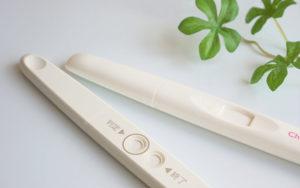Summary of This Article
If you feel that you might be pregnant, avoid alcohol, smoking, and caffeine intake. The very early stages of pregnancy are critical for the baby’s development, and activities such as drinking and smoking can increase the risks of preterm birth, miscarriage, and low birth weight. It is also important to maintain regular healthy habits and avoid infections.
Introduction
Once you become pregnant, it is not the case that you can continue living exactly as you did before pregnancy until you give birth.
There are things you need to do for the baby growing inside you and for the changes happening in your body due to pregnancy.
The things you need to do vary at each stage, from before pregnancy to just before giving birth, so you need to be careful.
Additionally, there are things that the husband needs to do as well, not just the mother.
In this article, we will explain what needs to be done at each stage and what the husband needs to do, so please refer to it together as a couple.
Things to Do Before Pregnancy
For those who want to become pregnant, it is important to review their lifestyle habits and environment before pregnancy.
Lack of sleep, lack of exercise, and stressful situations are considered to have a negative impact on pregnancy.
Therefore, it is essential to review and create regular lifestyle habits and a stress-free environment to make it easier to become pregnant.
Additionally, it is important to be aware that actions before pregnancy can potentially have a negative impact on the baby in the womb.
Specifically, attention should be paid to the following actions:
- Smoking
- Drinking alcohol
- Caffeine intake
- Excessive dieting
- Excessive medication use
Regarding alcohol and caffeine intake, it is generally considered to have little effect before pregnancy.
However, since there is a possibility of consuming them without realizing you are pregnant, it is better to avoid them as much as possible while trying to conceive.
In addition to reviewing actions and lifestyle habits, it is also important to undergo tests that may affect pregnancy and childbirth before becoming pregnant.
The tests you should consider include the following:
- Transvaginal ultrasound examination
- Rubella antibody test
- Infection screening
- Sexually transmitted infection (STI) screening
- Cervical cancer screening, etc.
Pre-pregnancy tests are also referred to as bridal checks, and you can receive the necessary tests as a set at medical institutions such as gynecological clinics.
Things to Do When You Find Out You’re Pregnant
The things you need to do once you find out you are pregnant vary depending on the stage of pregnancy.
The stages of pregnancy are broadly divided into the following four periods:
- Very Early Pregnancy
- Early Pregnancy
- Mid Pregnancy
- Late Pregnancy
From here on, we will explain what needs to be done at each stage of pregnancy.

Things to Do in the Very Early Stages of Pregnancy
The very early stages of pregnancy are not medically defined, but generally refer to the period from week 0 to around week 3 of pregnancy.
During this time, the amount of hormones detectable by pregnancy tests is often not yet being secreted, so a pregnancy test may still show a negative result.
However, due to pregnancy, various changes may occur in the mother’s body, and you may notice signs of pregnancy.
The bodily changes that may appear in the very early stages of pregnancy include the following:
- Light bleeding
- Abdominal pain or back pain
- Changes in the amount or color of vaginal discharge
- Fatigue similar to when you have a cold
- Irritability or feeling down
- Increased constipation or diarrhea
- Constant sleepiness
- Changes in appetite, such as loss or increase in hunger
In the very early stages of pregnancy, if you feel you might be pregnant due to the above symptoms and bodily changes, you should avoid alcohol, smoking, and caffeine intake, just as you would before pregnancy.
The very early stages of pregnancy are crucial for the baby’s development, so drinking alcohol and smoking can increase the risks of preterm birth, miscarriage, and low birth weight.
Therefore, if you notice signs of pregnancy, be mindful of your lifestyle habits and health management.
Things to Do in the Very Early Stages of Pregnancy
- Quit smoking
- Avoid alcohol
- Limit caffeine intake
- Avoid excessive medication (consult a doctor)
- Maintain regular, healthy lifestyle habits
- Be cautious to avoid infections
Things to Do in Early Pregnancy
Early pregnancy is the period up to 13 weeks and 6 days of pregnancy.
The previously mentioned very early stages of pregnancy are medically included in the early pregnancy period.
After the very early stages, pregnancy tests will start to show accurate results.
When a pregnancy test shows a positive result, visit an obstetrician-gynecologist to confirm the pregnancy accurately.
Once you know you are pregnant, submit a pregnancy notification form to your local government.
By submitting the pregnancy notification form, you will receive a maternal and child health handbook and be eligible for support such as subsidies for prenatal checkups and a lump-sum childbirth allowance.
Additionally, local governments may have their own support systems, so check the support system of your local government.
After pregnancy is confirmed, regular prenatal checkups will be conducted to monitor the health of both the mother and baby.
Attend prenatal checkups as directed by your doctor.
Things to Do in Early Pregnancy
- Test with a pregnancy test kit
- Visit an obstetrician-gynecologist for a pregnancy diagnosis
- Submit a pregnancy notification form to your local government once pregnancy is confirmed
- Receive a maternal and child health handbook
- Check the subsidy and support systems provided by your local government
- Attend prenatal checkups
- Decide on the hospital where you will give birth
- Inform your workplace if you have health concerns
NIPT (Non-Invasive Prenatal Testing) Can Be Done from Early Pregnancy
When you become pregnant, you may feel both the joy of carrying a new life and the worry about whether the baby in your womb will be born healthy.
If you want to know if your baby will be born healthy, we recommend the NIPT (Non-Invasive Prenatal Testing).
NIPT (Non-Invasive Prenatal Testing) is a test that can be done as soon as pregnancy is confirmed by an ultrasound. It checks the health of the unborn baby with just a blood sample from the mother.
By checking for chromosomal abnormalities in the baby, it is possible to assess the risk of conditions such as Down syndrome, Edwards syndrome, and Patau syndrome.
Things to Do in Mid Pregnancy
The second trimester of pregnancy is the period from 14 weeks to 27 weeks and 6 days of pregnancy.
The morning sickness that was difficult in the early stages of pregnancy gradually subsides, and the belly gradually gets bigger.
Because the condition stabilizes and the risk of miscarriage decreases, this period is generally referred to as the stable period.
When you enter the second trimester, make a reservation for delivery.
If you do not make a delivery reservation early, there is a possibility that reservations will be fully booked, and you will not be able to give birth at your desired hospital.
Once you have decided on your preferred hospital, it is best to make a delivery reservation as early as possible, no later than the second trimester.
Also, since the condition is stable in the second trimester, it is recommended to engage in maternity exercises for weight management and body preparation for childbirth.
Maternity swimming and maternity yoga programs for pregnant women are held at fitness facilities and hospitals.
In addition to maternity swimming and maternity yoga, walking on your own is also beneficial.
To-Do List for the Second Trimester of Pregnancy
- Make a delivery reservation
- Engage in exercises for pregnant women to manage weight and prepare the body for childbirth
- Report to the workplace and arrange for work handovers
Things to Do in Late Pregnancy
The third trimester of pregnancy is the period from 28 weeks to delivery.
Your belly becomes quite large, and you may experience symptoms such as frequent urination and nausea due to the pressure from the baby.
As you enter the third trimester, it’s time to prepare for the birth.
Discuss post-birth life with your partner, think about the baby’s name, and plan concretely for after the birth.
Additionally, for working mothers, this is the time to start maternity leave, so you need to complete the procedures for maternity and childcare leave at your workplace.
Moreover, it is also recommended to create a birth plan, which outlines your preferences for the birth experience, such as what you hope for during delivery and how you want to spend your time during labor.
To-Do List for the Third Trimester of Pregnancy
- Think of a name for the baby
- Plan for post-birth life
- Prepare necessary items for delivery, such as a change of clothes and the maternity health record book
- Complete the procedures for maternity and childcare leave
- Create a birth plan
Things to Do Just Before Giving Birth
As the time for delivery approaches, the moment to meet your baby is near.
Many may feel anxious because the timing of the birth is unpredictable.
However, constantly feeling anxious until the unknown moment of delivery can be mentally exhausting.
Therefore, after preparing for hospitalization and delivery with items such as a change of clothes and the maternity health record book, it is recommended to spend time in a relaxed manner by listening to your favorite music or watching movies.
Make preparations so that you can approach the birth with peace of mind.
To-Do List Right Before Delivery
- Confirm the preparation of items for hospitalization and delivery, such as a change of clothes and the maternity health record book
- Confirm the means of transportation and route to the hospital
- Prepare items that help you stay calm and relaxed
Things for the Husband to Do
When you hear about childbirth, it may seem like there are many things only the mother needs to do.
However, the husband also has responsibilities.
The toll on a mother who has undergone the physically and mentally exhausting process of childbirth is often compared to the impact of being in a car accident.
Therefore, the husband should support his wife to ensure she can give birth with peace of mind and help her rest and recover slowly after delivery.
To-Do List for Husbands
- Support with household chores and daily life
- Provide massages when there is physical pain
- Submit the birth registration
- Handle various applications such as child allowance and health insurance card
- Shop for necessary baby supplies

Things to Pay Attention to During Preparation
In preparing for childbirth, it is important not only to get your personal belongings ready but also to complete necessary procedures and notify your workplace.
Here, let’s take a closer look at the necessary procedures and notifications to your workplace to keep in mind during preparation.
Various Procedures
After the baby is born, there are various procedures that need to be submitted.
Some of these procedures have deadlines, so it is important to check them in advance and prepare to submit them within the deadlines.
The various procedures after childbirth include the following.
| Procedure | Eligible Individuals | Deadline | Submission Location |
| Birth Registration | All | Within 14 days including the birth date | Municipal Office |
| Child Allowance | All | Within 15 days including the birth date | Municipal Office of Current Address |
| Health Insurance Enrollment | All | As soon as possible after birth | Respective Health Insurance Office |
| Lump-Sum Childbirth Allowance | All | Varies by receipt method | Hospital or respective Health Insurance Office |
| Maternity Allowance | Employees | Within 2 years from the day after the start of maternity leave | Workplace |
| High-Cost Medical Expense Benefit | Individuals exceeding the out-of-pocket limit | Within 2 years from the first day of the month following the month of treatment | Respective Health Insurance Office |
In addition to the above, there may be other necessary procedures depending on your situation. Therefore, it is important to check in advance what procedures will be required and research how to complete them.
Contacting Your Workplace
For those who are working, it is necessary to inform your workplace once you become pregnant.
However, since there is a possibility of natural miscarriage before entering the stable period, it might be wise to consider whether to inform the entire workplace at that stage.
That said, even before entering the stable period, symptoms such as morning sickness and fatigue can make work challenging for the mother.
In such cases, it is reassuring to inform your supervisor or colleagues who can offer support, so you can receive help as needed.
After giving birth, you should report the birth to your workplace as soon as possible.
If the announcement is delayed and it appears as if you were trying to conceal it, it might leave a negative impression on your colleagues.
For procedures such as childcare leave and maternity benefits, it is recommended to report the birth early.
Conclusion
We have explained the tasks to be done from the moment you suspect you might be pregnant until delivery.
For a first-time pregnancy, it can be overwhelming not knowing what preparations to make or what needs to be done.
From the time you become pregnant, there are many things to do at each stage.
Refer to this article to check the tasks for each period of your pregnancy.
Additionally, NIPT (Non-Invasive Prenatal Testing), which checks for chromosomal abnormalities in the unborn baby, can be done as soon as pregnancy is confirmed by an ultrasound.
If you are concerned about chromosomal abnormalities in your baby, why not consider NIPT (Non-Invasive Prenatal Testing) along with other necessary steps?
【References】
- JAM – Evidence-Based Midwifery Guidelines for Pregnancy, Childbirth, and Postpartum 2020
- Japan Society of Obstetrics and Gynecology & Japan Association of Obstetricians and Gynecologists – Obstetrics Practice Guidelines 2020
Article Editorial Supervisor

Dr Hiroshi Oka
NIPT specialist clinic, MD
Graduated from Keio University, School of Medicine
 中文
中文






















